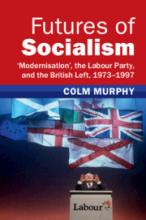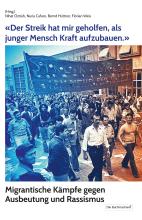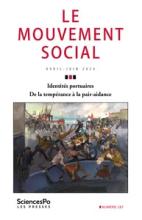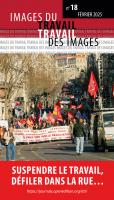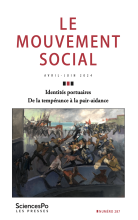Labour History: Labour Archives and Methodologies
The editors of Labour History invite contributions that reflect the expansion in the archives, both digitized and physical, and the methods we use to craft histories of labour.
"Der Streik hat mir geholfen, als junger Mensch Kraft aufzubauen." Migrantische Kämpfe gegen Ausbeutung und Rassismus (German)
by Nihat Öztürk, Nuria Cafaro, Bernd Hüttner, Florian Weis
Identités portuaires, Dossier du Mouvement social, n° 287
· Michel Pigenet, Éditorial. Les villes portuaires en question
· Table ronde : Tours d’horizon, avec John Barzman, Marie-Laure Griffaton et Françoise Péron, animée par Michel Pigenet
· Eduard Page Campos et Jordi Ibarz : Le dos tourné à la mer : la relation entre Barcelone et son port au XIXe siècle
Les Marxismes (French)
by Jean-Numa Ducange
https://www.puf.com/les-marxismes
Parmi les grands courants de pensée de l’histoire contemporaine, le marxisme occupe une place à part. Né après la mort de Karl Marx dans le contexte de développement des partis ouvriers, il est devenu l’une des idéologies les plus influentes du XXe siècle, revendiquée par des régimes politiques et de nombreux intellectuels de sensibilités diverses.
Latest Issue of Historical Studies in Industrial Relations
Liverpool University Press is pleased to inform you of the latest content in HISTORICAL STUDIES IN INDUSTRIAL RELATIONS (HSIR), a highly regarded publication that is essential reading for those working in and researching historical work in the field of industrial relations and the history of industrial relations thought.
Workshop "Untangling the circulation of ideas: historical perspectives on dispute resolution and enforcement in labour law"
11-12 September 2025, University of Strathclyde, Glasgow
This Workshop is organized by Johanna Wolf (Max Planck Institute for Legal History and Legal Theory), John Howe (University of Melbourne) and Rebecca Zahn (University of Strathclyde). It is being financially supported by the Max Planck Institute for Legal History and Legal Theory and the University of Strathclyde.
New Issue of "Images du travail, travail des images": Suspending work, marching in the street...
Photographers, video-makers and film-makers have readily taken an interest in street demonstrations, parades, marches and other gatherings. Sociologists, anthropologists, semiologists, historians, political scientists and other social scientists have done the same, the latter sometimes using iconographic material provided by the former. This issue of Images du travail, travail des images sets out to stimulate a meeting of minds, or at the very least, to encourage a cross-fertilisation of views.
New Issue of the Greek Review of Social Research
Published without interruption since 1969, The Greek Review of Social Research is the leading journal for the social and political sciences. The editorial board consisting of three EKKE researchers and two external social scientists is appointed by EKKE’s Board of Administration for a period of three years and is responsible for the publication procedures and the standards of the Review’s scholarship. The editorial board is supported by a scientific committee whose role is advisory as regards the development and dissemination of the journal.
Port identities - Identités portuaires
Chères et chers collègues,
J'ai le plaisir de vous informer de la parution du dernier n° de la revue d'histoire Le Mouvement social comportant le dossier "Identités portuaires" susceptible de retenir votre attention et dont j'ai assuré la direction.
Bien cordialement.
Dear colleagues,
I am pleased to inform you of the publication of the latest issue of the history review Le Mouvement social including the file "Port Identities" likely to attract your attention and of which I was responsible for the direction.
Kind regards.
Michel Pigenet

